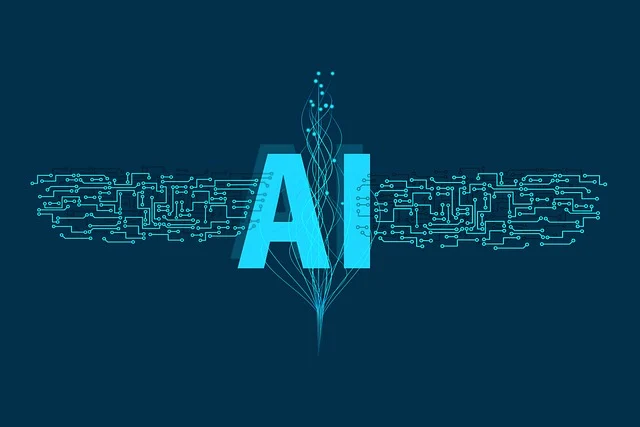The Rise of Generative AI
What is Generative AI?
Generative AI refers to artificial intelligence systems that can create content—ranging from text and images to videos and music—without explicit human intervention. Imagine having a creative partner who can brainstorm ideas, draft articles, design visuals, and even generate social media posts, all in real-time. That’s the power of generative AI in action.
Historical Perspective and Evolution
From early rule-based systems to the advanced neural networks we see today, generative AI has evolved dramatically over the years. Initially, AI struggled with simple tasks, but with the advent of deep learning and neural networks, it now powers sophisticated applications that mimic human creativity and intuition.
Key Technologies Behind Generative AI
At the heart of generative AI are technologies like machine learning, deep learning, and natural language processing (NLP). These systems analyze vast amounts of data to learn patterns and generate new content that is both relevant and engaging. Tools such as GPT (Generative Pre-trained Transformer) and DALL·E have become synonymous with innovation in the content creation space.
Generative AI in Social Media
How AI is Shaping Social Media
Social media platforms thrive on engaging, timely, and personalized content. AI is playing a pivotal role in ensuring that users receive the content that resonates most with their interests. By analyzing user data and behavior, AI algorithms can predict trends, suggest topics, and even generate posts that align perfectly with the audience’s preferences.
Impact on Content Creation
The impact of AI on content creation is profound. With AI-generated content, the speed and volume of production have skyrocketed. Marketers can now create multiple variants of a post in a fraction of the time it used to take, enabling rapid testing and optimization of content strategies.
Case Studies of Successful AI Implementations
Several brands have already embraced AI in their social media strategies. For instance, some fashion retailers use AI to generate personalized product descriptions and social media posts, resulting in higher engagement rates and improved sales. Meanwhile, media outlets are using AI to draft initial versions of articles, which are later refined by human editors, striking the perfect balance between efficiency and quality.
Redefining Content Creation
Traditional vs. AI-Driven Content
Traditionally, content creation involved extensive brainstorming sessions, lengthy drafts, and numerous revisions. With AI, however, the process has become more streamlined. AI tools can provide a solid first draft or even generate entire pieces of content, leaving creative professionals to fine-tune and add a personal touch.
Advantages of AI-Enhanced Content Creation
- Speed and Efficiency: AI drastically reduces the time it takes to produce content, enabling businesses to respond to trends almost instantaneously.
- Personalization: AI’s data-driven insights allow for highly tailored content that speaks directly to individual user preferences.
- Consistency: Automated content creation ensures that messaging remains consistent across various platforms, reinforcing brand identity.
- Cost-Effectiveness: By reducing the reliance on extensive human resources, businesses can allocate budgets to other strategic areas.
Challenges and Ethical Considerations
While AI presents incredible opportunities, it also raises ethical concerns. Issues such as data privacy, potential bias in algorithmic decision-making, and the risk of creating homogenized content need to be addressed. It’s crucial for companies to implement transparent practices and ethical guidelines to navigate these challenges responsibly.
Social Media Trends and AI Integration
Personalization and User Engagement
Imagine scrolling through your social media feed and encountering content that feels like it was made just for you. That’s the magic of personalization powered by AI. By analyzing user interactions, AI can curate feeds that reflect individual tastes and interests, keeping audiences hooked and engaged.
Visual Content and AI Innovations
The visual realm of social media has also been revolutionized by AI. Tools that generate high-quality images, infographics, and even short video clips are making it easier for brands to create captivating visual content. These innovations not only enhance the aesthetic appeal but also drive higher engagement rates, as visuals tend to capture attention more effectively than text alone.
Real-Time Content Adaptation
Social media is dynamic, and content needs to adapt in real-time. AI systems are now capable of monitoring trending topics and user sentiment, enabling brands to modify their content strategies on the fly. This agility ensures that brands remain relevant and responsive in an ever-changing digital landscape.
Impact on Marketing and Branding
Enhanced Targeting and Audience Insights
AI provides marketers with deep insights into audience behavior, allowing for more precise targeting. By understanding the preferences and behaviors of users, brands can create content that not only attracts attention but also converts leads into loyal customers.
Cost-Effectiveness and Efficiency
Automated content creation powered by AI significantly cuts down on the resources required to produce high-quality content. This efficiency means that even small businesses with limited budgets can compete on a larger scale, making the digital marketing space more accessible to all.
Brand Storytelling in the Age of AI
At its core, branding is about storytelling. With AI, brands have a powerful ally in crafting compelling narratives that resonate with their audiences. AI can analyze past campaign data to identify what stories work best, and then generate new content that aligns with the brand’s voice and message.
Tools and Platforms Leading the Change
Popular Generative AI Tools in Social Media
Several tools are at the forefront of this revolution. From content generators like OpenAI’s GPT series to visual creators like DALL·E, these platforms empower marketers and content creators to push the boundaries of creativity. Each tool brings its unique strengths, whether it’s in text generation, image synthesis, or video production.
Innovative Platforms Leveraging AI
Platforms such as Canva, Lumen5, and Adobe Spark are integrating AI to offer users seamless design experiences. These platforms simplify the creation of high-quality visuals and videos, allowing users to focus on strategy and storytelling rather than technical details.
Comparison of Top Tools
When comparing these AI tools, it’s essential to consider factors such as ease of use, customization options, and integration capabilities. For instance, while some tools are ideal for creating quick social media posts, others might be better suited for in-depth content creation and brand storytelling.
User Experience and Engagement
How AI Improves Social Media Interaction
User experience on social media has reached new heights with the integration of AI. Chatbots and virtual assistants powered by AI can interact with users in real-time, providing instant responses to queries and guiding users through complex processes. This enhanced interaction not only improves satisfaction but also fosters a deeper connection between the brand and its audience.
Case Examples of Improved Engagement
Consider a scenario where an AI-powered chatbot on a fashion brand’s Instagram page assists users in finding the perfect outfit based on their preferences. Such personalized engagement not only boosts sales but also builds brand loyalty. These real-life examples underscore the transformative impact of AI on user interaction.
The Role of Chatbots and Virtual Assistants
Chatbots are no longer just about customer service. They have evolved into full-fledged virtual assistants capable of handling various tasks—from answering FAQs to providing personalized recommendations. This evolution has turned them into indispensable tools for modern brands seeking to enhance their social media presence.
Ethical Implications and Data Privacy
Balancing Innovation with Responsibility
While AI brings exciting opportunities, it is imperative to balance innovation with ethical responsibility. Brands must ensure that their use of AI adheres to ethical standards, particularly when it comes to data collection and user privacy. Transparency in AI practices not only builds trust but also sets a benchmark for responsible innovation.
Data Security in AI-Driven Platforms
Data is the backbone of AI. However, with great power comes great responsibility. Ensuring robust data security measures is non-negotiable in the age of AI. Brands need to invest in secure infrastructures and continuously update their protocols to safeguard user data from potential breaches.
Future Regulations and Best Practices
As AI continues to evolve, so will the regulatory landscape. It is expected that governments and regulatory bodies will introduce guidelines to ensure that AI is used responsibly. Staying informed about these regulations and implementing best practices will be crucial for brands to avoid legal pitfalls and maintain ethical standards.
The Future of Content Creation
Emerging Trends in AI and Social Media
The future holds even more exciting developments in the realm of AI and social media. From augmented reality experiences to AI-driven interactive content, the possibilities seem endless. These emerging trends promise to further blur the lines between human creativity and machine intelligence.
Predicted Changes in the Industry
Experts predict that the next few years will see an even greater integration of AI into everyday content creation. We might witness fully automated content pipelines that require minimal human intervention, while still preserving the unique voice and style of the brand.
Expert Opinions and Future Forecasts
Industry leaders are optimistic about the future of generative AI in social media. Many believe that as AI technologies mature, they will become even more integral to how we communicate and engage online. These expert insights reinforce the idea that embracing AI is not just a trend but a fundamental shift in the digital landscape.
Challenges Facing the Industry
Technical and Creative Hurdles
Despite its numerous advantages, AI is not without its challenges. Technical hurdles, such as ensuring the accuracy and relevance of generated content, remain a concern. Creative challenges also emerge when trying to maintain a unique brand voice in a sea of AI-generated content.
The Risk of Homogenization
One of the significant risks associated with AI in content creation is homogenization. When multiple brands rely on similar AI algorithms, there’s a chance that content may start to look and feel too similar, losing the uniqueness that defines individual brands. How do we maintain originality in an AI-driven world?
Overcoming Resistance to Change
Not everyone is ready to embrace AI wholeheartedly. Some traditional content creators worry about the potential loss of the human touch. Overcoming this resistance requires education, transparency, and a clear demonstration of how AI can augment rather than replace human creativity.
How to Adapt and Thrive in the AI Era
Strategies for Content Creators
For content creators, the key to thriving in the AI era is adaptability. Start by exploring AI tools that can streamline your workflow. Experiment with different platforms, learn from successful case studies, and gradually integrate AI into your creative process. Think of AI as your assistant rather than a competitor.
Tips for Marketers and Brands
Marketers should focus on combining data-driven insights with creative storytelling. Use AI analytics to understand your audience better, and then craft messages that resonate on a personal level. Diversify your content strategy by balancing automated content with human-crafted narratives.
Learning and Upskilling for the Future
The digital landscape is evolving rapidly. Continuous learning is essential for staying relevant. Invest in courses, attend webinars, and join industry communities that focus on AI innovations in marketing. Upskilling is not just an option; it’s a necessity for future success.
Real-World Success Stories
Examples of Brands Leveraging AI Successfully
Several brands have already demonstrated how effective AI can be in transforming social media strategies. From startups to established enterprises, real-world examples abound where AI-driven content has led to significant increases in engagement and conversion rates. Whether it’s a retail brand using personalized product suggestions or a media company streamlining their news delivery, AI is proving to be a game-changer.
Lessons Learned from Pioneers in the Field
Learning from early adopters is invaluable. Brands that ventured into AI-driven content creation have shared insights about balancing technology with human creativity. Their experiences highlight the importance of starting small, testing rigorously, and scaling gradually while keeping a close eye on both user feedback and performance metrics.
Conclusion
The intersection of generative AI and social media is more than a technological advancement—it’s a revolution in how we create, share, and experience content. As we navigate this brave new world, it’s clear that AI offers unparalleled opportunities for innovation, efficiency, and personalization. However, with these benefits come challenges that require thoughtful consideration, ethical practices, and continuous adaptation. The future of content creation is not about replacing human creativity but augmenting it with powerful, intelligent tools. Embrace the change, stay curious, and let the fusion of technology and creativity propel your brand to new heights.
FAQs
1. What is Generative AI?
Generative AI refers to systems that can autonomously create content such as text, images, and videos using advanced machine learning algorithms. It’s like having a creative partner who works around the clock!
2. How does AI improve social media content?
AI enhances social media content by enabling faster production, personalized content recommendations, and real-time adaptation based on user behavior, ensuring that the content remains engaging and relevant.
3. What are the ethical concerns associated with AI in content creation?
Ethical concerns include data privacy, algorithmic bias, and the risk of content homogenization. Companies need to use AI responsibly and implement transparent practices to address these issues.
4. Which industries benefit most from AI-driven content?
While almost every industry can benefit from AI-driven content, sectors like marketing, retail, media, and entertainment have seen significant improvements in engagement and efficiency through the integration of AI technologies.
5. What steps can brands take to integrate AI into their strategies?
Brands should start by exploring AI tools, investing in training and upskilling, balancing automated content with human creativity, and ensuring they have strong data privacy and ethical guidelines in place.
Explore more by joining me on Patreon








